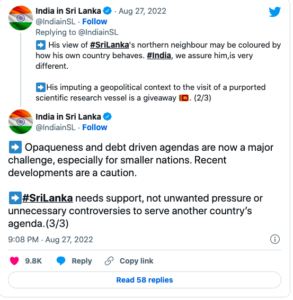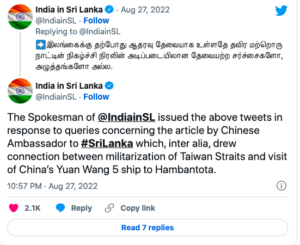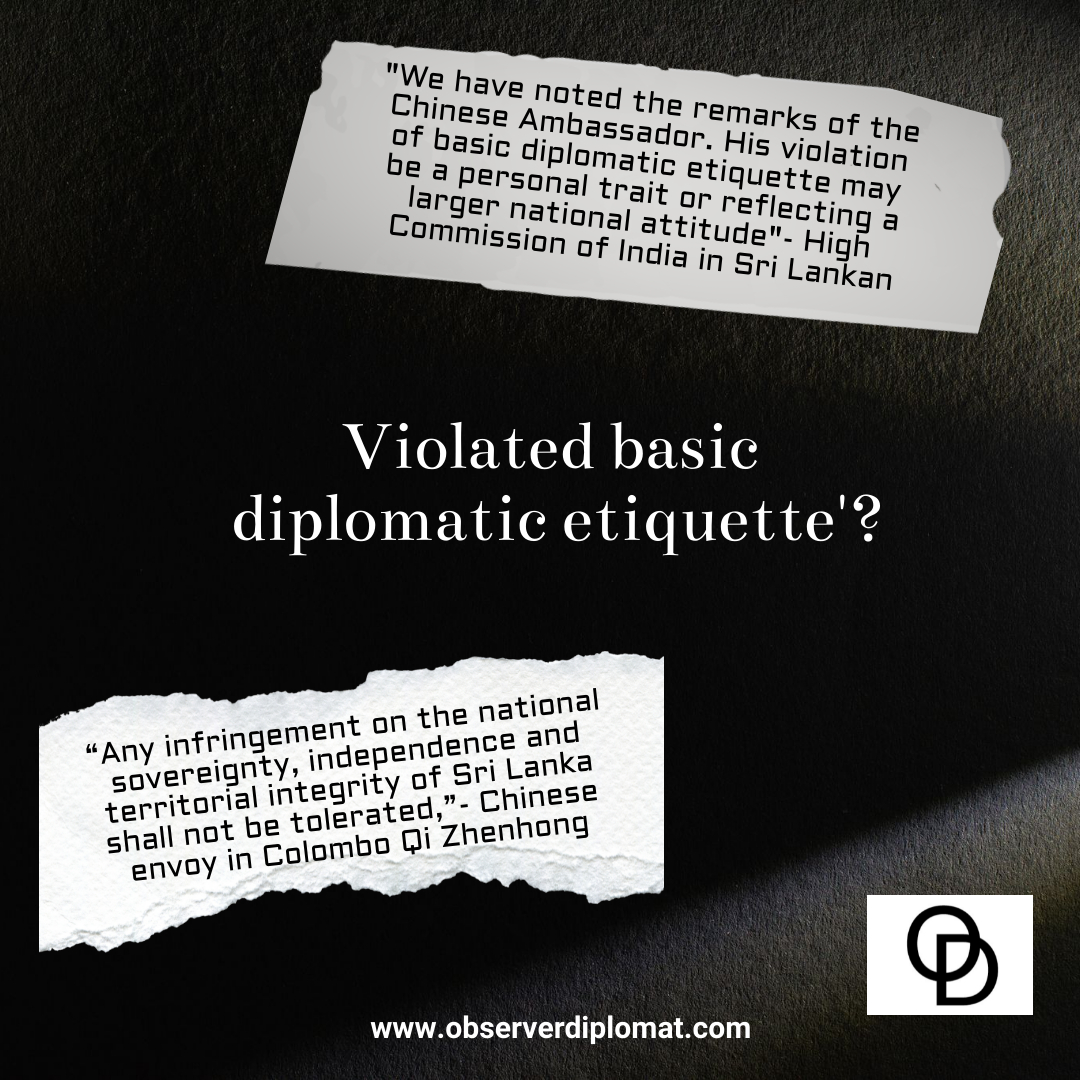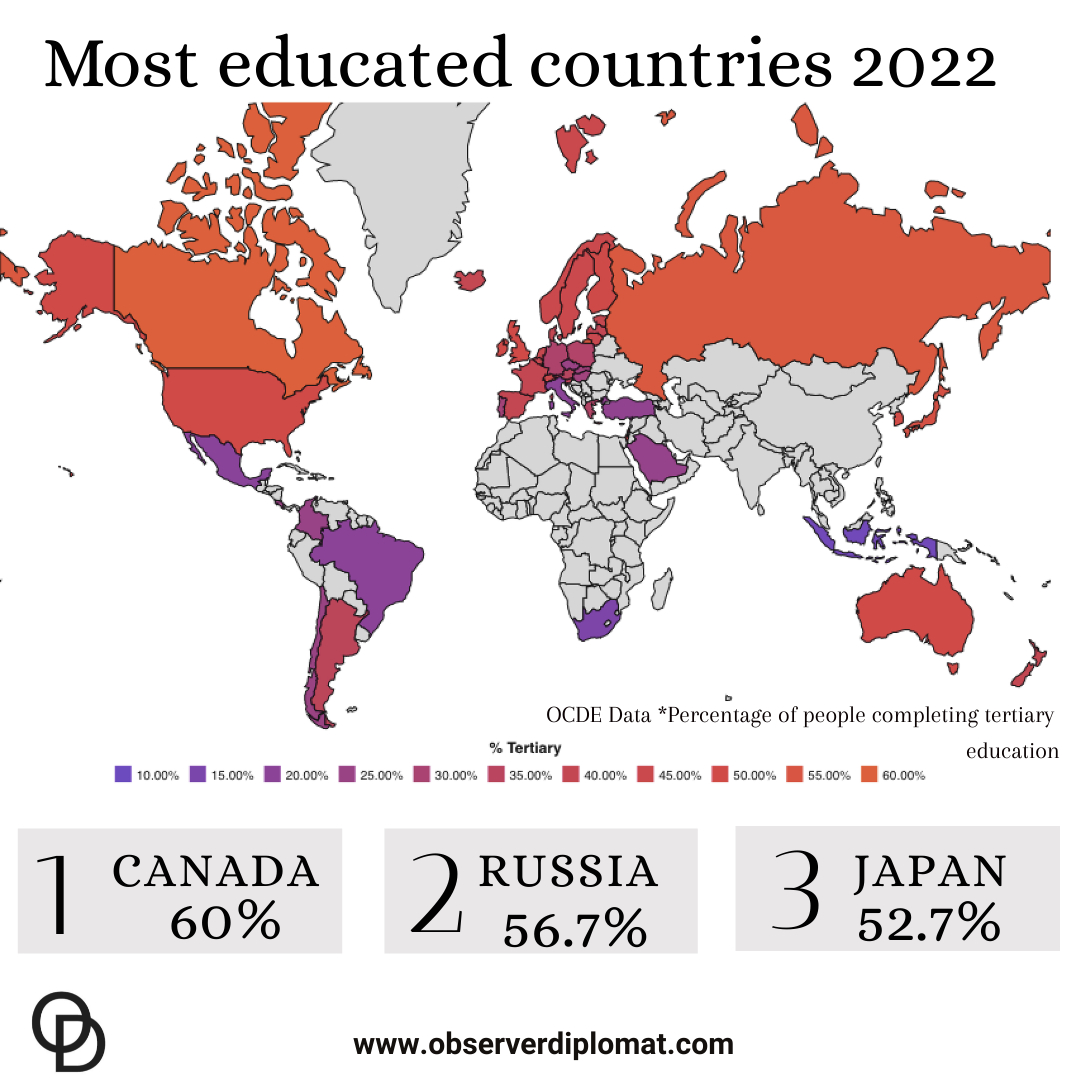After Chinese ambassador claimed that Sri Lanka was “unreasonably” pressured to cancel the docking permit of a Chinese ship, India accused him of violating “basic diplomatic etiquette” and alleged that the geopolitical importance attributed by China “gave away” its actual purpose.
India firmly told China that what Colombo needs now is “support, not unwanted pressure or unnecessary controversies” to serve another country’s agenda.
“We have noted the remarks of the Chinese Ambassador. His violation of basic diplomatic etiquette may be a personal trait or reflecting a larger national attitude,” the High Commission of India in Sri Lankan tweeted.

It then claimed that the Chinese diplomat was projecting China’s behaviour onto India. “His view of Sri Lanka’s northern neighbour may be coloured by how his own country behaves. India, we assure him, is very different”.
India pointed out that the importance given by China to the visit by Yuan Wang 5 was a clear indication that the ship had other functions besides that of a purely scientific manner.
“His imputing a geopolitical context to the visit of a purported scientific research vessel is a giveaway,” the Indian high commission tweeted.
Later in the night, the high commission tweeted that these tweets were issued in “response to queries concerning the article by Chinese Ambassador to Sri Lanka, which, inter alia, drew connection between militarization of Taiwan Straits and visit of China’s Yuan Wang 5 ship to Hambantota.”

In his article, the Chinese ambassador had written that Sri Lanka was standing “proudly” after having “overcome aggression from its northern neighbour for 17 times, colonization by the west for 450 years, and an anti-terrorism war for nearly 3 decades”.
“Any infringement on the national sovereignty, independence and territorial integrity of Sri Lanka shall not be tolerated,” he wrote.
The Chinese diplomat also added, “External obstruction based on so called “security concerns” but without any evidence from certain forces is de facto a thorough interference into Sri Lanka’s sovereignty and independence”.
India suggested that Sri Lanka has a significant external debt burden as China had funded major infrastructure projects without transparency.
According to media reports, Sri Lanka owes nearly $7 billion to China, accounting for 6.2% of Colombo’s total central government debt. The International Monetary Fund, negotiating with Sri Lanka over a financing loan, advised Colombo to start debt restructuring talks with China.
“We reject the insinuations in the statement about India. Sri Lanka is a sovereign country and makes its own independent decisions,” the MEA spokesperson said on August 13.
















